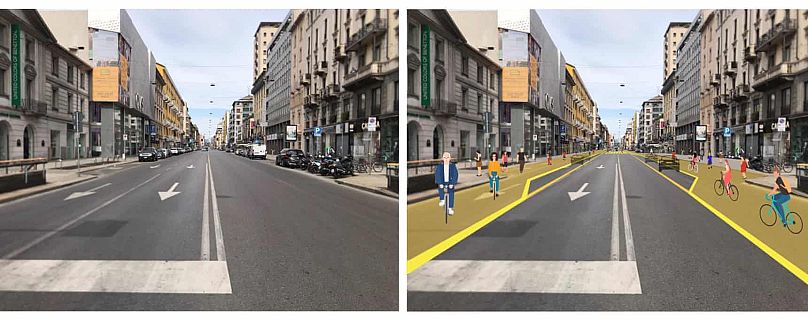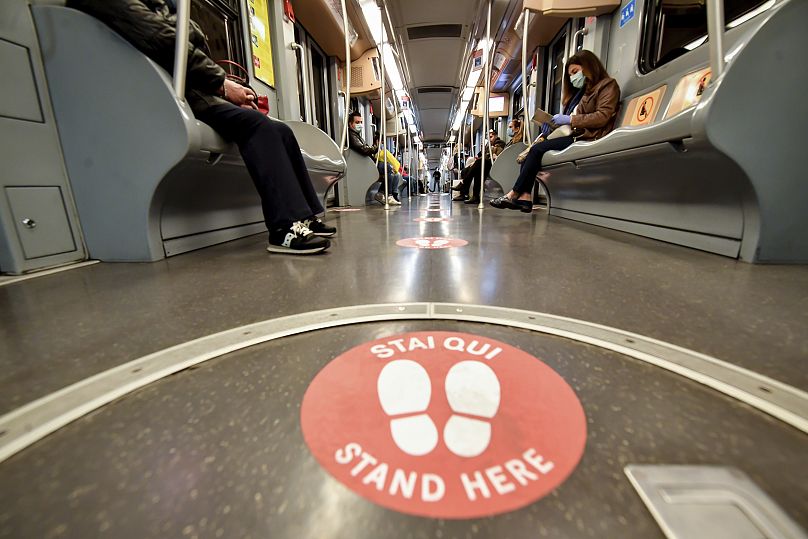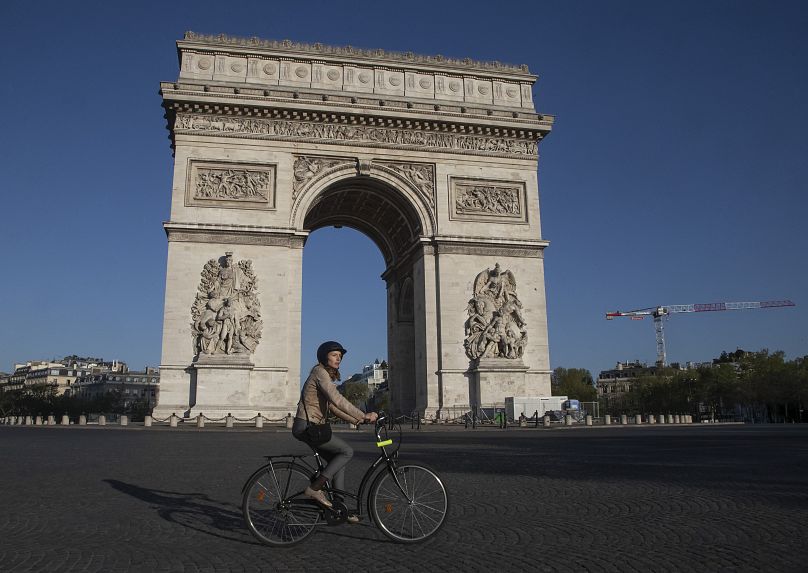The lockdowns have accelerated much deeper changes that were already underway in our cities, in particular, the drive to push cars out of key areas.
As shutdowns are eased, social distancing will become the new normal across Europe.
 ADVERTISEMENT
ADVERTISEMENT
 ADVERTISEMENT
ADVERTISEMENT
From compulsory face masks to strict one way systems in shops, our daily lives are going to look and feel very different.
Watch: Will Europe's cities become greener after lockdown is lifted?
The lockdowns have also accelerated much deeper changes that were already underway in our cities, in particular, the drive to push cars out of key areas.
They have the potential to permanently affect how we commute, work, shop and socialise.
In Milan, plans have been brought forward for 70 km of new cycle lanes along with the expansion of pedestrian areas.
The first phase of the project will be completed in September with the remainder opening next spring.
The Open Roads project aims to radically reduce the use of public transport during the pandemic - and will remain in place after it ends. This will permanently shrink the space given to vehicles along key routes, helping the city tackle its long-standing air pollution problem.
During the lockdown residents couldn’t move more than 200m from their homes, highlighting the need for local access to shops, services and green spaces.
Milan’s deputy mayor Marco Granelli told Culture Clash that local neighbourhoods are now being reimagined as “the backbone of citizens' lives”.
“We need these changes now to be rapid because we need to respond to a problem today, but we need to do it knowing that these will be the new normality.
“Milan, our cities, Europe after the coronavirus, will be different. It is up to us to have the strength and the ability to govern this process for the long term,” Granelli said.
Similar shifts towards more permanent sustainable policies are being seen across Europe, as countries prepare to ease lockdowns and allow a phased return to daily life.
France has announced a €20 million scheme to encourage people to cycle in an attempt to fend off a surge in pollution as the country unlocks.
“One of the things unclear at the beginning of the pandemic was: were these policies going to continue or, were people going to say, 'Right we’ve just got to get people moving and stop worrying about these policies',” Feargus O’Sullivan, a writer for City Lab, told Culture Clash.
“It seems so far that the message is in cities like Milan, also Paris, Barcelona, Brussels, they are going forward with these more sustainable green policies - and in fact intensifying them.”
COVID-19 is set to cast a long shadow over our daily lives even when the lockdowns end. However, it is clear that the changes made in the coming months have the potential to radically transform the face of our cities in the longer term.













